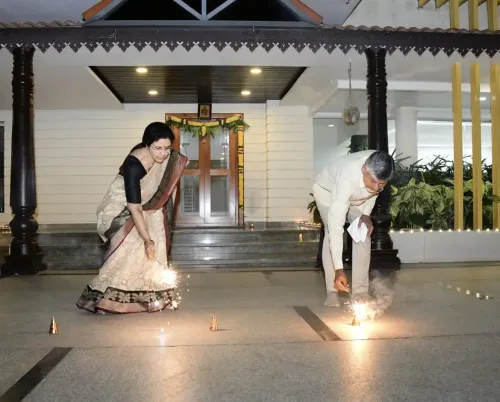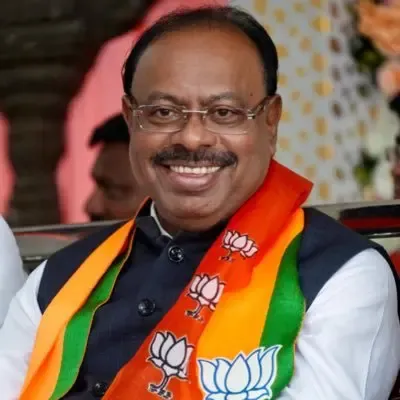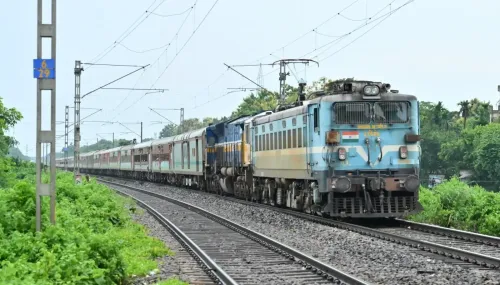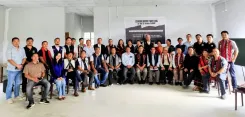What Are the Future Prospects for Bilateral Cooperation? EAM Jaishankar Engages with German Counterpart
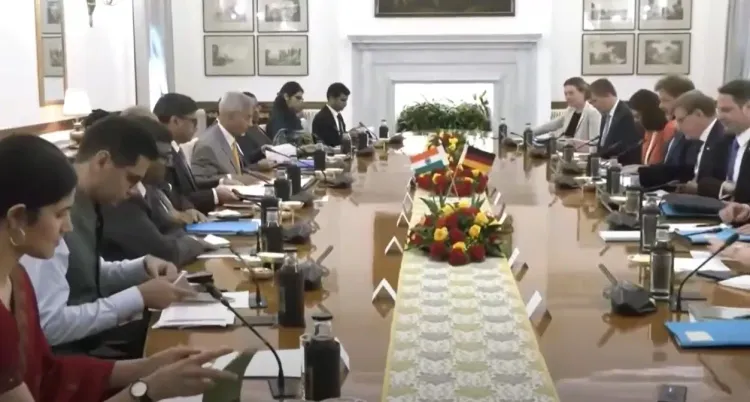
Synopsis
Key Takeaways
- India and Germany celebrate 25 years of strategic partnership.
- Focus on enhancing bilateral trade and cooperation.
- Discussions aim to expedite Free Trade Agreement negotiations.
- Strong emphasis on technological collaboration.
- Mutual support in addressing global challenges.
New Delhi, Sep 3 (NationPress) Emphasizing the rich legacy of multilateral cooperation between India and Germany, External Affairs Minister S. Jaishankar expressed his eagerness to engage in comprehensive discussions with his German counterpart, Johann Wadephul, on various facets of bilateral collaboration. He conveyed his optimism that today’s discussions will further enhance the multilateral ties between the two nations.
In his introductory remarks during the meeting with Wadephul, Jaishankar pointed out that India relies on Germany's support to strengthen its relationship with the European Union and hasten the negotiations for the Free Trade Agreement (FTA).
He stated, "As you mentioned before departing Germany, we are celebrating 25 years of our strategic partnership, 50 years of scientific collaboration, nearly 60 years of cultural agreements, and over a century of business interactions, as witnessed in Bangalore. I'm pleased that your visit included Bengaluru, allowing you to see the vast potential of our cooperation in technology. It is also commendable that you have brought along a strong business delegation and several parliament members.
"Today, I eagerly anticipate in-depth discussions about the various aspects of our bilateral cooperation. This will prepare us for fruitful intergovernmental consultations going forward. Hearing Germany's perspectives on significant global and regional issues will undoubtedly be enlightening for us. We value your support in deepening our relationship with the European Union and accelerating the FTA discussions. India and Germany share a strong legacy of multilateral cooperation, which I am confident will be further developed through our conversations today," he added.
Jaishankar warmly welcomed Johann Wadephul on his inaugural visit to India as Germany’s Foreign Minister.
He continued, "The timing of this visit, just months after my visit to Berlin in May, speaks volumes. We recognize that this is one of your early excursions outside Europe, and we greatly appreciate your presence in India.
Earlier on Tuesday, Ministry of External Affairs (MEA) spokesperson Randhir Jaiswal welcomed Johann Wadephul to India, expressing confidence that his engagements in Bengaluru and Delhi will further reinforce the strategic partnership between the two nations.
"Herzlich Willkommen to India! FM Johann Wadephul of Germany has arrived in New Delhi. His engagements in Bengaluru and Delhi will further strengthen the multifaceted India-Germany Strategic Partnership as we commemorate 25 years of its establishment," Jaiswal shared on X.
Before his departure for India, Johann Wadephul described India as a "key partner" in the Indo-Pacific and emphasized the closeness of ties between the two nations. In a post on X, he remarked, "India is a key partner in the Indo-Pacific. Our relations are strong - politically, economically, and culturally. The expansion of our strategic partnership holds significant potential: from security cooperation to innovation and technology to recruiting skilled workers.
"India's voice, as the world’s most populous country and largest democracy, resonates beyond the strategically vital Indo-Pacific region. This is precisely why I am traveling for discussions in Bangalore and New Delhi today," he added.
He underscored that India plays a pivotal role in shaping the international order of the century and referred to India and Germany as "natural partners."
"India plays a crucial role in shaping the international order of our time. As democracies, we are natural partners in this endeavor. In light of the significant geopolitical challenges we face, we must strive to uphold the rules-based international order together," Johann Wadephul concluded in his post on X.

